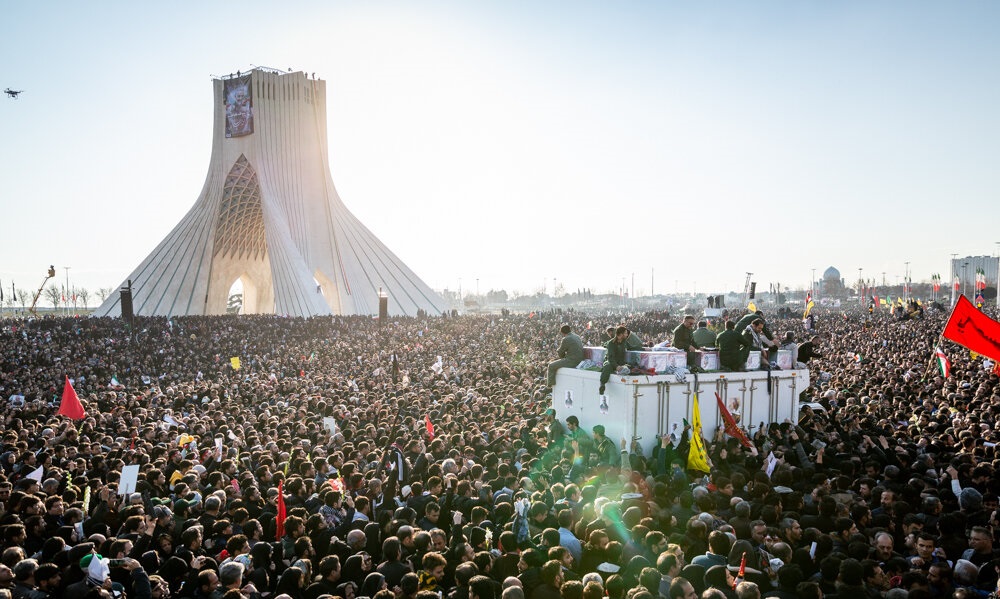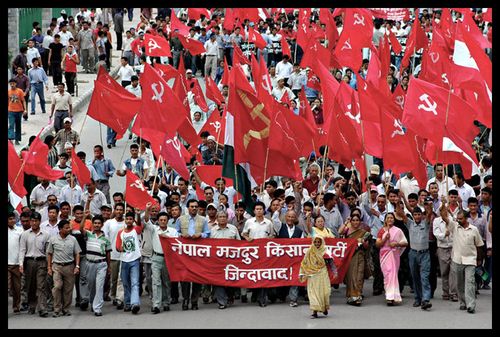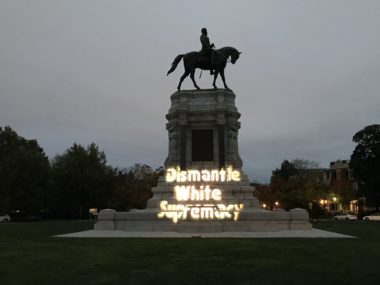The world’s attention has been focused on the assassination of the Iranian General Qasem Soleimani, Iranian counterattacks, and the prospect of renewed war in the Middle East. Yet, in the weeks and months prior to the current crisis, a potentially more important development has been taking place across the region: mass popular uprisings in Lebanon, Iraq, and Iran, have shaken these governments to their core.
These were not movements with lofty ideological goals; rather, people took to the streets to protest corruption, poor public service delivery, and economic distress. They were not planned and orchestrated by any of the main political parties and actors in these countries, but were spontaneous uprisings by large, diverse segments of society, united by their basic needs.
These protests were especially troubling to Iran, as they revealed cracks in its domestic and foreign policies. In Lebanon, protesters strongly denounced Hezbollah—Iran’s key proxy there. In Iraq, where Iranian-backed paramilitary groups have enjoyed tremendous influence, protesters burned down the Iranian consulate in Najaf. For ordinary Iraqis and Lebanese, Iranian influence in their country’s politics is an affront to their national sovereignty.
Within Iran itself, what began as a protest against a rise in fuel prices led to unprecedented protests against the regime. The government responded by shutting down the internet and killing several hundred unarmed civilians, leading to a further erosion of its legitimacy. Moreover, protesters decried Iran’s involvement in foreign entanglements and its support for militias elsewhere, at the expense of domestic problems. For a moment, it appeared as though the Iranian government would have to back down.
Then came the killing of Soleimani, commander of the Quds Force, which is responsible for training and equipping militias in the region, including Lebanon and Iraq. Across the broader Middle East, resentment of Iranian influence does not necessarily translate into support for US military operations. Instead, Lebanese officials across the political spectrum offered condolences to their Iranian counterparts, and Hezbollah vowed to retaliate against American forces. The Iraqi parliament passed a resolution calling for the withdrawal of US troops, and thousands marched in Baghdad to mourn Soleimani as well as Abu Mahdi al-Mohandas, the Iraqi militia leader also killed in the strike. Rather than driving a deeper wedge between Iran and countries in the region, the strike on Soleimani appears to have done exactly the opposite.
Inside Iran, anti-government protests that were raging only weeks ago have been muted, only to be replaced by mass protests against the United States. Academic research has shown that foreign crises tend to increase support for incumbent governments and draw attention away from economic problems. With the specter of a potential confrontation with the United States, the regime has a pretext for demanding internal unity. As a result, mass unrest has subsided without important concessions by the government.
To be sure, the grievances that drove popular protests in Lebanon, Iraq, and Iran still remain. Ordinary citizens want decent jobs, functioning schools, and safe roads—bread-and-butter issues that have been long neglected by corrupt leaders. Without meaningful reform, people will take to the streets again— eventually. But for now, the strike against Soleimani appears to have been counterproductive. If the aim was to reduce Iran’s influence in the region and weaken the regime, assassination failed on both counts.







